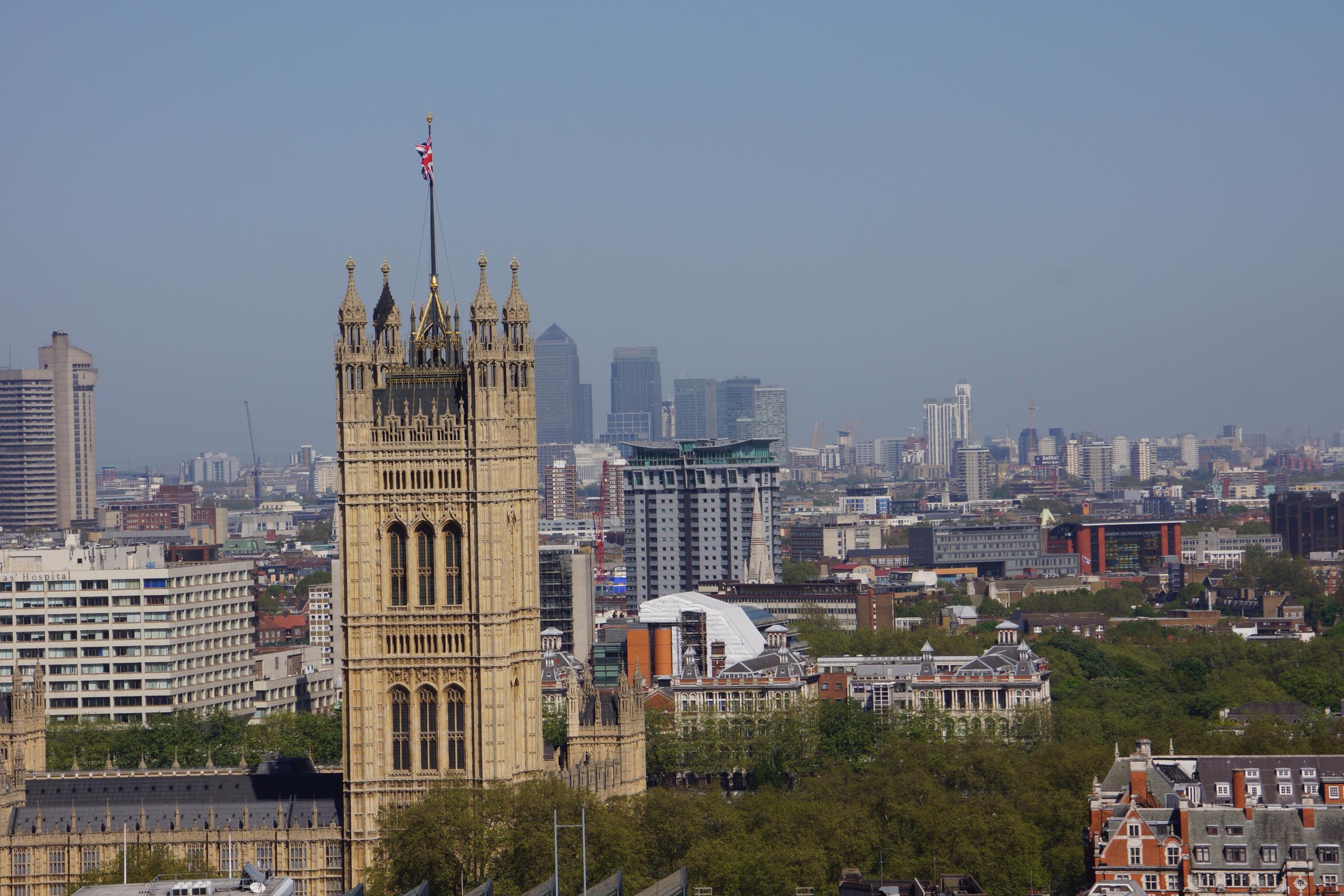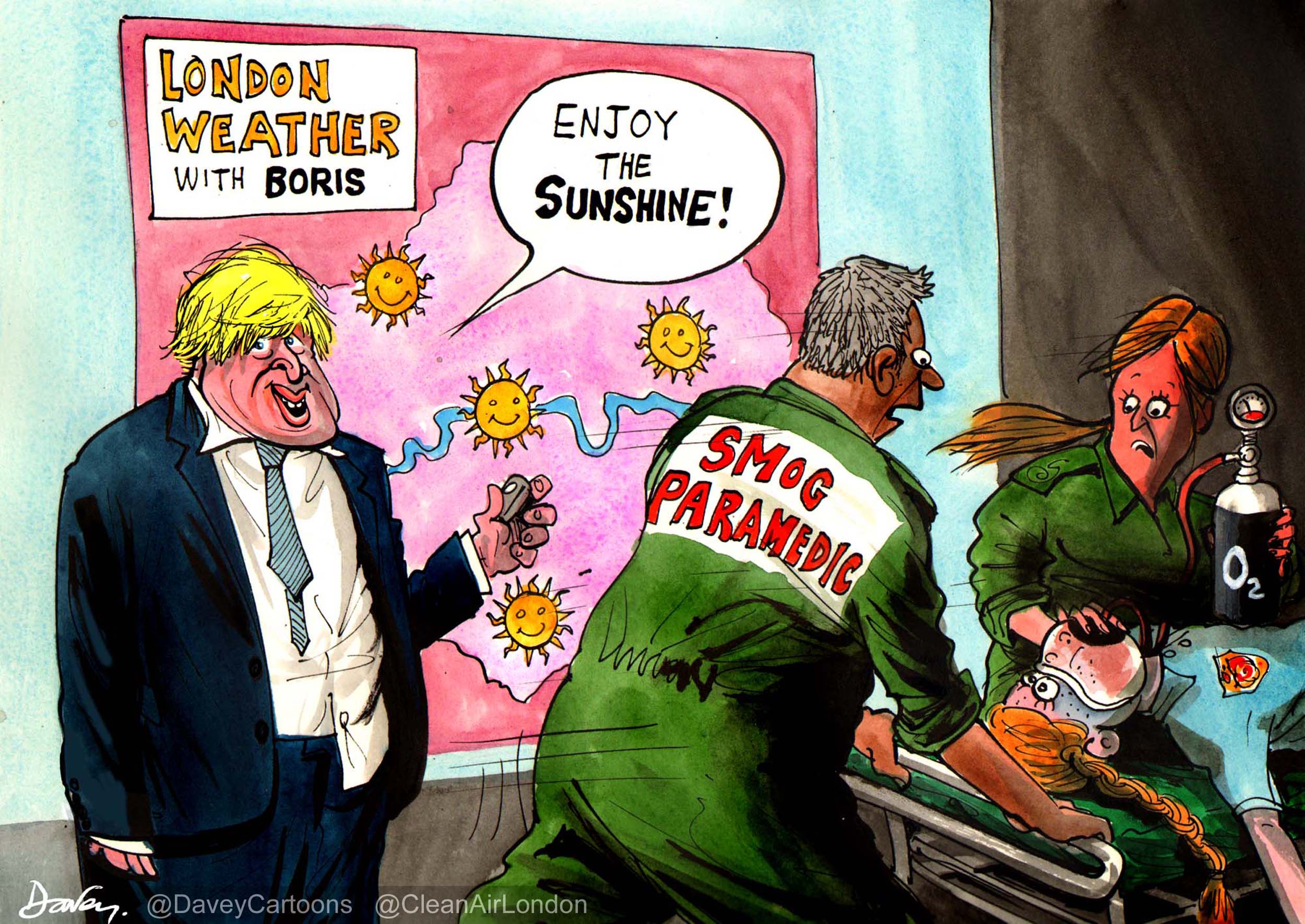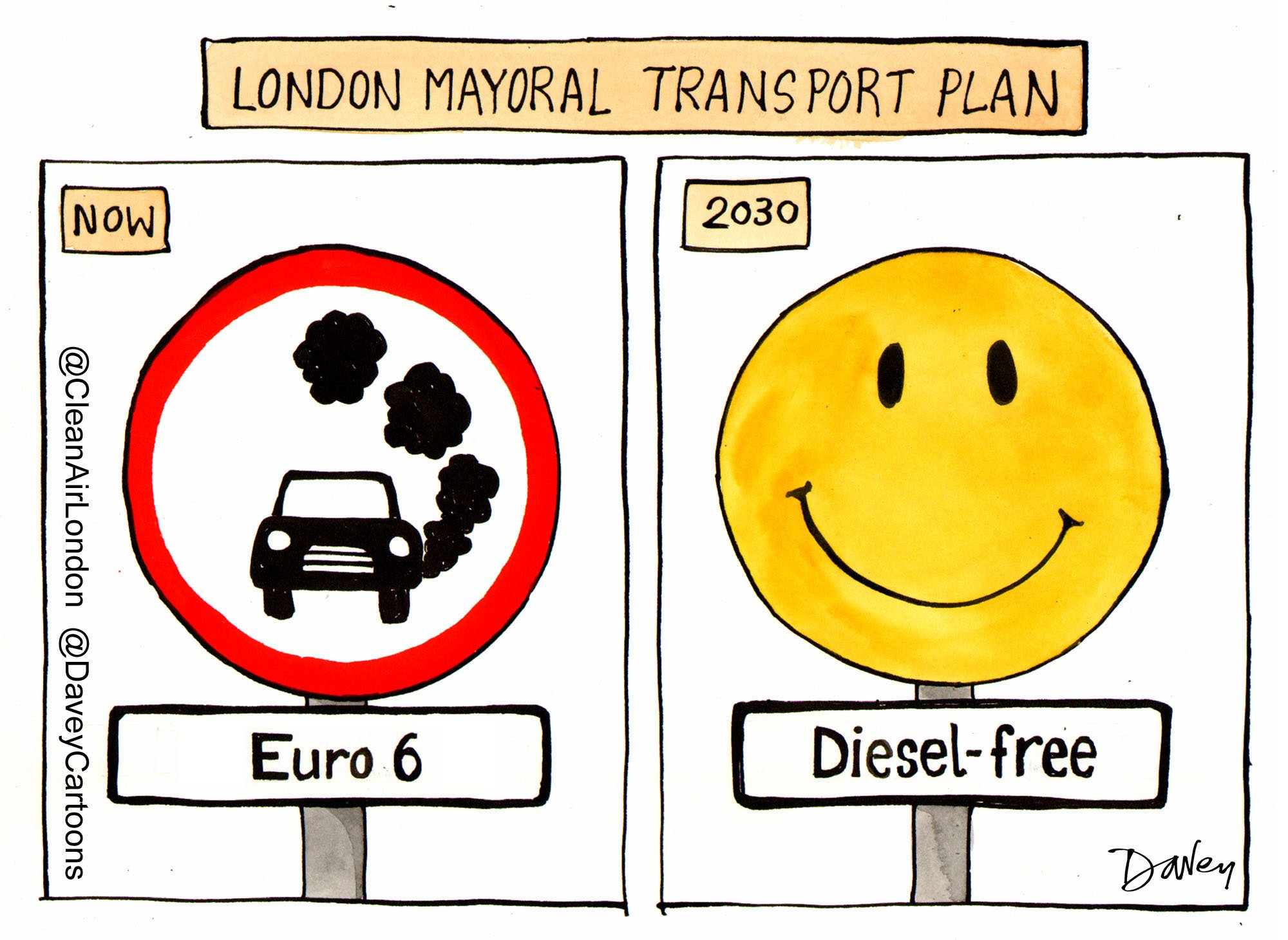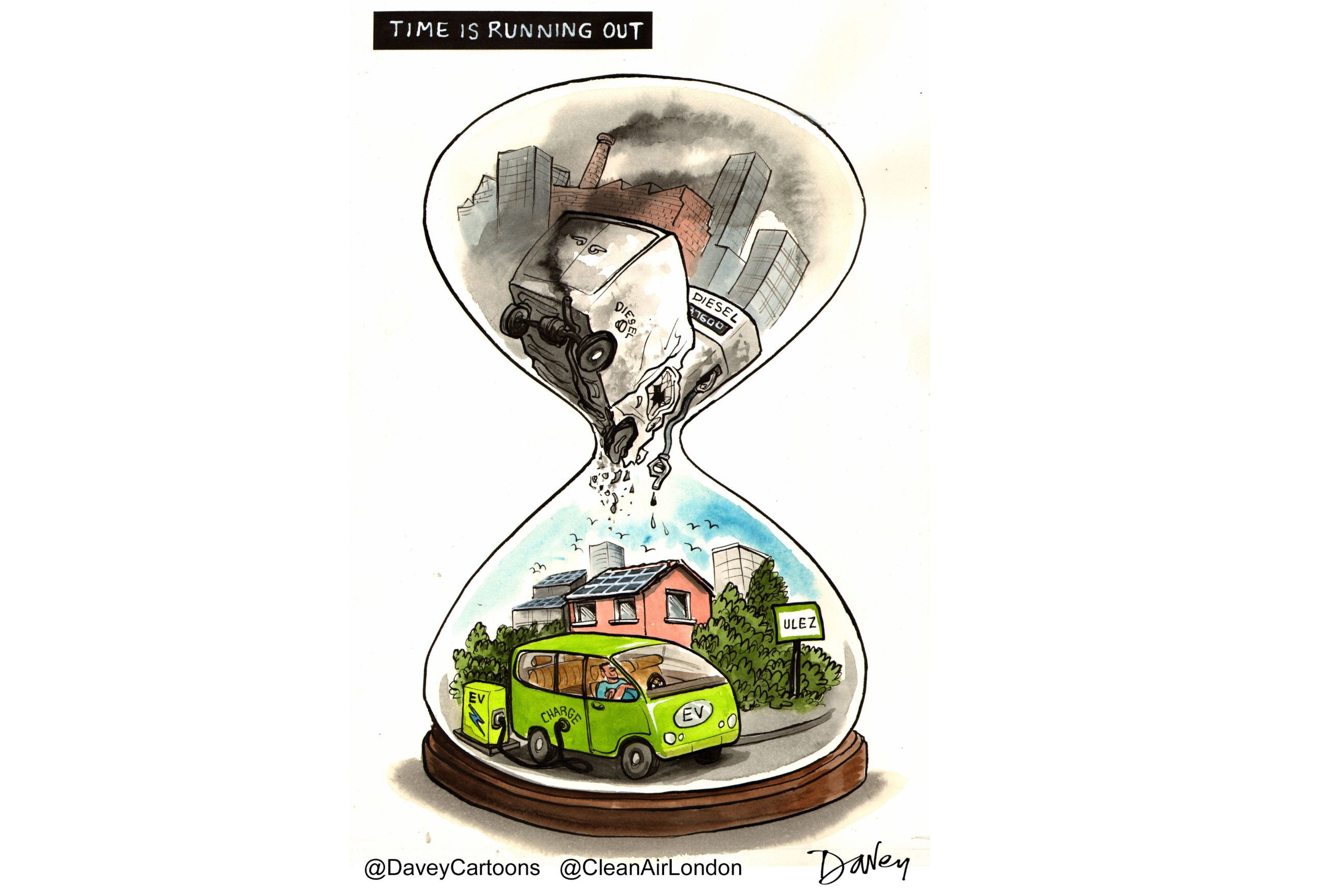Parliament’s powerful Environmental Audit Committee unearths evidence of over a decade of government failings or ‘cover-ups’ over air quality premature deaths
Martin Horwood, Liberal Democrat MP for Cheltenham, obtains confirmation from expert that ‘Clean Air in London’s’ best estimate of 3,460 premature deaths (and up to 7,900) due to dangerous airborne particles in London in 2005 is correct
EAC establishes that government: should be referring to ‘premature deaths’ in line with international practice; and has been slow in updating air quality statistics
Communication campaign is needed urgently to boost public understanding of the dangers of poor air quality with advice on ‘mitigation’ and ‘adaptation’
The cross-party Campaign for Clean Air in London (CCAL) congratulates Parliament’s powerful Environmental Audit Committee (EAC) on the rapid progress of its hard hitting and effective inquiry into whether the UK has an effective strategy to comply with its air quality obligations. It is clear today the UK does not have such a strategy.
Environmental Audit Committee second oral evidence session
The EAC held its second oral evidence session today as part of its air quality inquiry. Those interviewed included:
- Dr Ian S McRae, Senior Technical Manager; Energy, Emissions and Air Pollution Group, Transport Research Laboratory;
- Professor Frank Kelly and Dr Gary Fuller of the Environmental Research Group, King’s College London; and
- Graham Pendlebury, Director, Environment and International Directorate; Iain Forbes, Head of Air Quality Branch; and Chris Parkin, Head of Engineering Standards Branch, Department for Transport
The webcast of the second oral evidence session can be seen at:
http://www.parliamentlive.tv/Main/Player.aspx?meetingId=5844
Quotes:
Simon Birkett, Founder of the Campaign for Clean Air in London, said:
“Parliament’s powerful Environmental Audit Committee (EAC) has done its job today. The EAC has found, as the Campaign for Clean Air in London predicted it would, over a decade of government failings or ‘cover-ups’ over air quality premature deaths.
“In a nutshell there are two issues. First, why has the government not used – since 1998 – ‘premature deaths’ as a key metric when updating its assessments of the health impacts of air pollution (e.g. in 2001, 2006 and 2009)? Second, why has the government been so slow in updating its air quality statistics generally?
“It is becoming clear that the answer to both these questions is that the government knew it could not easily explain an estimate of 8,100 premature deaths due to dangerous airborne particles becoming 35,000 or more. The EAC has unearthed this picture today and Martin Horwood, of the Liberal Democrats, deserves special recognition for his dogged pursuit of the facts.
“The government’s letter of last Monday saying ‘There has not been a cover-up…’ is published on the Campaign’s website.
“Despite the government’s protestations, CCAL calls again on the government to apologise for not warning the public, as it should have done, about the full extent of the health risks of poor air quality after its failure to update, or its ‘covering-up’ of, over 250,000 premature deaths due to dangerous airborne particles over 10 years. This may be the one of the worst public health failings or ‘cover-ups’ in modern history.
“We need urgently a communication campaign to boost public understanding of the dangers of poor air quality. People should be advised about: ‘mitigation’, for example, to avoid – when they can – the most polluted streets when walking; and ‘adaptation’ such as choosing, where practicable, the least polluting means of travelling around.
“CCAL urges the EAC and others, such as the Mayor of London and the London Assembly, to support this call for a government apology.”
Public health risks of air quality have been exposed at last
In response to tough and direct questioning by the EAC today, Professor Kelly disclosed, for the first time, the full impact of poor air quality on public health in the United Kingdom.
Martin Horwood, Liberal Democrat Member of Parliament for Cheltenham, took the lead in asking health questions and found:
i. the link between health and air quality is well proven (from 26 minutes on the webcast);
ii. poor air quality is likely to affect disproportionately the most vulnerable (from 26 minutes);
iii. those dying from poor air quality may do so ‘up to 10 years early’ (from 27 minutes);
iv. the metric of ‘premature deaths’ is well suited to communicating the health risks of poor air quality to the general public. It is commonly used in other countries (from 29 minutes 25 seconds);
v. the current ‘best’ estimate is that some 35,000 people died prematurely due to long- term exposure to dangerous airborne particles in the UK in 2005. In fact, the European Topic Centre for Air and Climate Change for the UK (in a report titled ‘Health Impacts of Air Pollution – An exploration of factors influencing estimates of air pollution impact upon the health of European citizens’ (December 2008), has estimated an average figure of around 50,000 for the UK (from 30 minutes and 30 seconds);
vi. the Campaign for Clean Air in London’s ‘best’ estimate of 3,460 premature deaths due to dangerous airborne particles in London in 2005 is reasonable and it is possible the number could be as high as 7,900 (of 53,000 total deaths in London in 2005) (from 32 minutes);
vii. the government might be criticised for being slow in updating its air quality statistics (from 33 minutes); and
viii. a communication campaign is needed urgently to boost public understanding of the dangers of poor air quality (numerous references).
CCAL emphasises to EAC members and officials the significance of today’s revelations
In conversations with Committee members and officials after the EAC meeting, CCAL emphasised the significance of today’s revelations. In particular, CCAL explained that it is not just that the government has been referring to ‘up to 24,000 premature deaths due to air pollution annually’ and the number is now estimated by experts to have been 35,000 in 2005.
See Ministerial speech in September 2009:
Speech no longer available.
More startlingly, the broad comparison is between: 8,100 premature deaths in urban GB due to short-term term exposure to dangerous airborne particles (PM10) (estimated in 1998 for 1995 and 1996 air pollution levels); and around 35,000 (or 50,000) estimated by experts (although not government) due to long-term exposure to fine particulate matter (i.e. PM2.5 which is a subset of PM10) in the UK in 2005.
The Committee on the Medical Effects of Air Pollution (COMEAP), which advises the government, published its report, titled ‘Quantification of the Effects of Air Pollution on Health in the United Kingdom’, on the health impact of short term exposure to dangerous airborne particles (PM10) in 1998. This reviewed time series studies and took as a coefficient of effect an increase of 0.75% in mortality (i.e. premature deaths) per 10 microgram per cubic metre (μg/m3) increase in PM10 as a 24-hour mean. COMEAP estimated a total of 8,100 deaths ‘brought forward’ due to PM10 annually among total deaths in urban Great Britain (based on 1995 and 1996 air pollution levels). See:
http://comeap.org.uk/images/stories/Documents/Reports/quantification%20report%201998.pdf
The same COMEAP report referred to 3,500 deaths brought forward per year in urban areas of GB due to sulphur dioxide (SO2) and between 700 and 12,500 deaths brought forward by ozone (O3) in both urban and rural GB during the summer only. Ministers, commentators and others have therefore estimated and referred, including as recently as late 2009, to there being 12,300 and 24,100 deaths ‘brought forward’ (or ‘up to 24,000 deaths’) annually in the UK due to air pollution.
Dangerous airborne particles (or particulate matter) are usually defined in terms of size i.e. PM2.5 (up to 2.5 microns (μm) in diameter) (fine particulate matter) and PM10 (up to 10 μm in diameter). Concentrations of PM10 in Europe typically comprise around 65% to 75% PM2.5.
The European Topic Centre on Air and Climate Change published a report in June 2009 titled ‘Assessment of the health impacts of exposure to PM2.5 at a European level’ estimated 51,537 premature deaths due to PM10 in the UK. See:
http://acm.eionet.europa.eu/reports/ETCACC_TP_2009_1_European_PM2.5_HIA
Estimate of 35,000 premature deaths may itself be an under-estimate
CCAL, emphasising again its lay credentials, has explained that the estimate of some 35,000 premature deaths due to long-term exposure to dangerous airborne particles (PM2.5) in the UK 2005 may itself be an underestimate because:
i. it excludes any premature deaths due to sulphur dioxide, ozone and/or other air pollutants;
ii. some premature deaths due to short-term exposure to dangerous airborne particles may be excluded; and
iii. the risk coefficient on which the calculation of 35,000 is based (i.e. 6% per 10 μg/m3 increase in PM2.5) is based in part on Pope et al (2002) (see COMEAP’s 2009 report page 52, paragraph ii) whereas subsequent studies such as:
‘Reduction in Fine Particulate Air Pollution and Mortality, Extended Follow-up of the Harvard Six Cities Study’ by Laden et al (2006):
http://ajrccm.atsjournals.org/cgi/reprint/173/6/667 ; and
‘Spatial analysis of air pollution and mortality in Los Angeles’ by Jerrett et al (2005):
http://www.ncbi.nlm.nih.gov/pubmed/16222161
point to higher risk factors (which indicate up to 7,900 premature deaths due to PM2.5 in London in 2005).
Separately, CCAL also points out that Kunzli et al (2001), in research titled “Assessment of Deaths Attributable to Air Pollution: Should We Use Risk Estimates based on Time Series or on Cohort Studies”, said “the amount of time lost, per statistical victim, turned out to be 9.8 years, which corresponds to a change in life expectancy of approximately 0.6 years in the total population [i.e. 7.2 months]”. In other words, the health impact may not be ‘up to 10 years’ but 9.8 years on average for those who die prematurely from the affects of PM2.5.
National Emissions Ceilings Directive
Last, but not least, it will be important for the EAC to highlight the UK’s failure to comply with the National Emissions Ceilings Directive.
Notes:
1. Environmental Audit Committee inquiry into air quality
The House of Commons Environmental Audit Committee (EAC) announced on 21 October 2009 its inquiry into Air Quality. The purpose of the inquiry is to assess whether the government is developing an effective strategy for meeting its obligations under the EU Air Quality Directives.
Further details of the EAC’s inquiry into air quality, including its Terms of Reference, Next Evidence Session and Written Evidence received can be found on its homepage. See:
http://www.publications.parliament.uk/pa/cm200910/cmselect/cmenvaud/229/22902.htm
Memoranda submitted to the EAC’s air quality inquiry are available at:
http://www.publications.parliament.uk/pa/cm200910/cmselect/cmenvaud/229/22902.htm#evidence
A transcript of the oral evidence session will be available (in due course) on the EAC’s Reports and Publications webpage.
2. National Audit Office report on air quality
As a prelude to that inquiry, the EAC asked the National Audit Office (NAO) to prepare an overview of the UK’s performance to date in meeting various targets and limits for each air pollutant. The NAO has published today its report on air quality. See:
http://www.nao.org.uk/publications/0910/eac_briefing_-_air_quality.aspx









